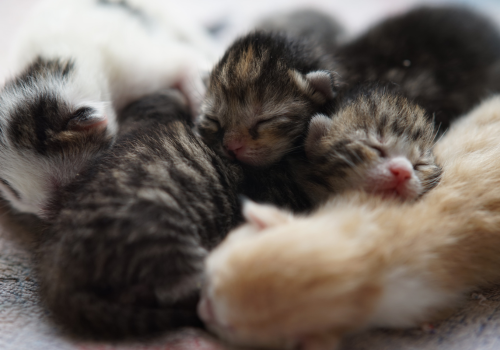Whether you bred your cat on purpose or perhaps your unspayed indoor cat got out and is now pregnant, you’ve likely turned to the internet for answers on keeping your pet safe throughout the pregnancy. We’re glad you founds us! The internet is great for many things, but at Reata Veterinary Hospital, we believe pet care information should come straight from your veterinarian, especially with such a critical topic. To avoid the misinformation that can come from internet searches, we’ve taken FAQs on cat pregnancy and answered them as thoroughly and accurately as possible to ensure you have the facts. Although you can trust the information below, we always urge you to consult your own veterinarian.
If you’re looking for a highly trained veterinarian in Tucson, AZ, we’d love to see your cat and make sure she’s set up for optimal health throughout her pregnancy, so please call us at (520) 376-2609.
What is the most important thing to know if your cat is pregnant?
As obvious as this sounds, the most important thing is to verify that your cat is pregnant. Because the care doesn't have to change a lot, it’s good for you to know that she’s pregnant, as it might affect some of the decisions you have to make going forward.
How soon should you bring your pet to see a veterinarian if you suspect your cat is pregnant?
There’s some debate about this, but most veterinarians will tell you to bring your cat in sooner rather than later if you suspect she’s pregnant. If nothing else, this will help you get her a good head-to-toe wellness exam. We want to ensure that the female cat is in perfect health and able to carry this litter properly, probably even checking her for worms to ensure she doesn't have that burden weighing her down. And if so, we need to deworm her adequately before she gets further along in the pregnancy. So as soon as you pick up on that something is different, the best thing to do is bring her to your veterinarian for an exam.
What are some signs of pregnancy in a cat?
There are only a couple of pregnancy symptoms in cats, but they are somewhat obvious—the swollen belly is the first thing. Cats don't necessarily show that in the very early stages, but probably three or four weeks in, you can start to see that they may look a little fuller in the abdomen. And about that time, or maybe even a bit after that, you might begin to see that their mammary glands are becoming enlarged. Those are likely the only two external factors you're going to see. There will perhaps be a change in their temperament every once in a while, but that's usually even further along when she’s getting close to delivery.
How will a veterinarian determine if your cat is pregnant?
At this time, there are no dependable pregnancy blood tests that we can do to verify cat pregnancy.
There are generally three ways we can check to see if your cat is pregnant, which are as follows:
-
- Most times, what we do is digital palpation with our hands.
- If palpation is uncertain, then depending on how far along they are, x-rays can show you if they are pregnant or not. It usually takes about until day 50 before the bones become ossified enough to show up on an x-ray.
- If the pregnancy is still in question or uncertain after the x-ray, then an ultrasound can detect them a bit earlier—an ultrasound can detect a pregnancy as early as a couple of weeks.
What are some things people can do at home to prepare for their cat's labor?
Mother Nature is going to do almost everything for you. Let’s assume this is an indoor cat that we're talking about, but even if it's an outdoor cat, probably the most important thing you can do is provide the cat a safe, isolated, comfortable space—a whelping box if you will. And that can be anywhere—a closet, a cardboard box, a spare bathroom. It matters not where it is, but make sure your cat has a quiet, dark, comfortable area where she can go when the time comes. That's where she'll likely hide and deliver the kittens.
How can you help your cat recover after giving birth?
Again, simply let Mother Nature do her thing in most cases. After the kittens are born, you want to look for obvious things.
Some of the things you should watch for after your cat has given birth are:
- Make sure that not only is the mother eating and drinking
- Ensure the kittens are nursing on a frequent schedule, between every 1-2 hours
- The mother cat will also help the kittens eliminate, so make sure that that is happening
To reiterate, much of this will be on autopilot, but you can stand back and ensure those things are happening.

Will my cat naturally know how to take care of her kittens?
With very few exceptions, that answer is yes. Again, there are exceptions to every rule. Still, when they go through the whole birthing experience, the hormone release that happens when that process occurs would normally make them kick in and certainly help the cat to begin the mothering process herself.
Purina has also created a comprehensive guide to cat pregnancy. If you have further questions about cat pregnancy, reach out to your veterinarian. If you live in or near Tucson, AZ, we’d love to help ensure a safe and happy cat pregnancy, so please don’t hesitate to call us at (520) 376-2609 or email us at [email protected].
